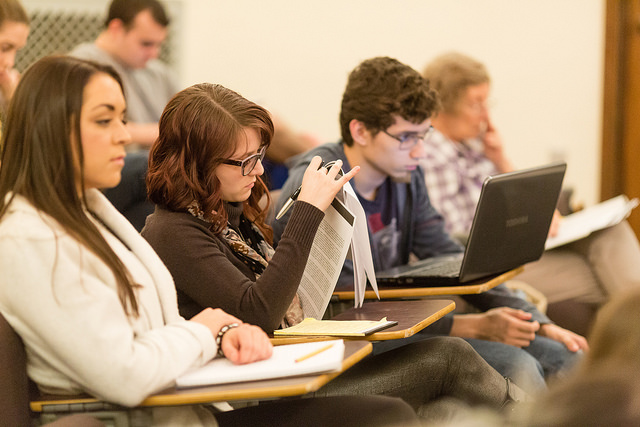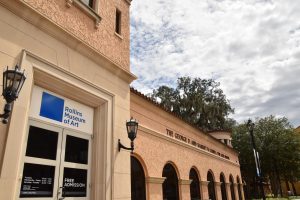The Winter with the Writers 2018 season culminated in fine fashion when authors Lisa Ko and Elliot Ackerman gave master classes and a joint reading. These 2017 National Book Award finalists delved into topics dealing with nationality, culture, and the permeability of physical and psychological borders.
Ko is a first-generation American, born in Queens, N.Y. to Filipino parents. While she was not adopted, as the protagonist is in her novel The Leavers, Ko does understand the pull between two cultures and the dual identity that it can birth.
The Leavers follows Chinese-American boy Deming Guo and his mother, Polly, as they are separated from each other. Deming must grow up in a white family and household, trying to reconcile his upbringing with his Fuzhounese-Chinese roots.
Through Deming, Ko explores the tensions between cultural identities and how culture forms identities.
Ko has been praised for her usage of language as a vessel for culture, as well as her piercingly holistic portrayal of what being a mother entails. She alluded to the importance of fleshing out a character’s being and desires in her master class. Interns presented stories of their own, and Ko asked questions such as, “What does this character want?” and, “How is your character suited or not suited to the challenge?”
“Not speaking a language often means not being able to talk to certain family members,” Ko explained in her post-reading interview. She alluded to the fact that language is often a gateway into a culture, and switching languages can often mean taking on a whole new persona.
Ko’s Deming and Polly are not the only protagonists who are caught between two identities. Haris Abadi, the protagonist of Elliot Ackerman’s Dark at the Crossing, is an Iraqi-American former translator for the army. During his time assisting the U.S. Army, he chose to stand against his own people and help bring down his own government.
Haris now wishes to go to Syria amid its civil war after years of living peacefully in the U.S. He does not know why, but he feels the war calling him back and hopes he will find some sort of redemption there.
“For a lot of people, war can be salvation, or it can be oblivion,” explained Ackerman in his interview.
Some people return to war to find themselves, others to destroy themselves. For Haris, it seems to be a mixture. Beyond the novel, this is a truth faced by thousands of ex-soldiers.
Ackerman is able to craft such rich, fleshed-out depictions of cities like Kilis, Antep, and Aleppo thanks to his military experience. Former Second Lieutenant Elliot Ackerman served five tours of duty in Iraq and Afghanistan, totalling eight years of service. During this time, he earned a Silver Star and a Purple Heart for his role in the 2004 Second Battle of Fallujah.
Ackerman’s previous novel Green on Blue, which is set in Afghanistan, won the Dayton Literary Peace Prize.
During his master class, Ackerman discussed the delicate balance required of endings. Endings must never overstate, he cautioned. A proper ending will leave what is implied unspoken.
Ko and Ackerman have not simply brought more writing lessons to Rollins; in their writing, they carry truths about who we are, truths based on how we grow up and how we fight.







Be First to Comment